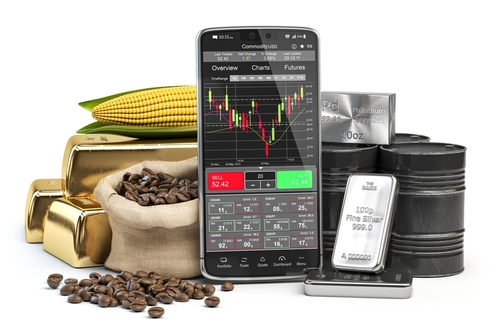Commodities vs Securities: What's the Difference?
Commodities vs Securities
In a broader sense, both commodity and security are assets. Assets are either commodities or securities. However, it needs to be clarified with digital assets.
Generally, a commodity is a good exchangeable with other goods of the same type, usually raw material for producing goods or services. On the other hand, security is a tradable financial instrument with monetary value.
Moreover, although commodities and securities are assets that traders can buy and sell, securities have tight regularity oversight compared to commodities. Further, companies issuing securities should provide detailed and transparent information for investors.
Likewise, commodities vs securities is clear enough. However, it gets complicated with digital assets like cryptocurrency. Based on their perception, many investors categorize cryptocurrency as a commodity and a security. Learn more about our Crypto Security to keep your crypto investments safe and secure.
So, let us look closely at the difference between commodities and securities.
What is a Commodity?
A commodity is a tangible product, such as raw material, that is used to make other products. It includes goods like oil and gas and metals like gold and silver. Moreover, soft products like grains, livestock, and cotton are also part of a commodity.
Moreover, traders can buy and sell these commodities in the open market or through derivatives like futures and options.
Likewise, trade of commodities occurs between companies dealing in these. For instance, food producers would buy livestock and agricultural commodities, whereas industrial companies would buy metals. However, generally, we need help to draw a hard line between the usages of different types of commodities as multiple companies have exposure to various commodities.
Furthermore, commodities generally perform better, thus becoming an ideal tool for investors looking to hedge against inflation.
Characteristics of Commodity
- Physical nature and homogeneity
- Market standardization and grading are key characteristics of commodities coming for sale in the market
- Prices are sensitive to weather, geopolitical events, and demand and supply dynamics
What is Security?
A security is an intangible tradable financial instrument issued by governments or organizations to raise funds. The most common form of security is equity, debt, or a combination of both.
Moreover, securities generally comprise stocks, bonds, mutual funds, and exchange-traded funds (ETFs). However, the legal implication of security is much broader as it also includes a contract for selling agricultural land. Likewise, corporations issue shares to raise capital from the public by issuing securities.
However, companies should follow strict rules and requirements set by governing bodies worldwide. The rules are designed to ensure transparency, thus providing investors with confidence that their investments are safe.
Characteristics of Securities
- Securities are transferable
- Holder has a legal ownership right and has a degree of control over assets
- Securities are instruments for both speculation and investment
Key Differences between Commodities and Securities
In the debate of commodities vs securities, it is vital to establish key differences. Let us discuss the major differences between these two types of assets.
-
Nature of Investment
The nature of investment is different between commodity and security. You invest in basic raw materials while investing in a commodity. For instance, when you buy oil, wheat, corn, or gold, you invest in a commodity.
Contrarily, you invest in security when buying financial instruments with a certain value. These could include company shares, government bonds, or futures.
-
Regulation and Oversight
Generally, securities are highly regulated by government authorities. This governance aims to ensure investment holders make business decisions that are in the investors' best interests.
On the other hand, commodities are less regulated. Generally, demand and supply mechanisms decide the prices, as these are traded in the open market.
-
Trading Mechanism
Commodities are generally traded through futures contracts on an exchange like the Chicago Mercantile Exchange. Moreover, these exchanges support buyers and sellers in interacting and transacting in the future for a predetermined price at a future date.
Securities are typically traded on exchanges like the New York Stock Exchange. The ownership of securities is immediately transferred to the buyer when the deal is finalized.
-
Price Determinants
The prices of commodities are generally determined by demand and supply dynamics. At the same time, the prices of securities depend on a host of factors, including interest rates, investor sentiment, or the financial strength of the company issuing securities.
-
Risks Associated
Generally, the prices of commodities are highly volatile as they depend on uncontrollable factors like weather and geopolitical situations. Moreover, returns on commodities are solely dependent on price appreciations.
However, securities carry market risk, as prices of securities could fall due to factors such as economic situation or changes in investor behavior. Moreover, there is a bigger credit risk for bond investors.
Is Cryptocurrency a Commodity or Security?
Commodities vs securities is relatively straightforward. However, things get tough when it comes to distinguishing digital assets like cryptocurrency.
However, the debate still needs to be settled on whether cryptocurrencies constitute commodities or securities. However, considering all the aspects, one can deduce a one-size-fits-all solution for cryptocurrencies. A few cryptos have commodities like the one features, while others are closer to security.
Likewise, it is important to categorize cryptocurrencies, as their nature will determine their regulations and the future of the crypto industry.
-
Cryptocurrencies as Commodities
Security vs commodity crypto is debatable; however, the proponents of crypto as a commodity take sides in its strict monitoring, just like commodities. They also argue that cryptocurrencies store value like gold.
Furthermore, traders buy crypto assets for speculative purposes, thus matching with commodities as they, too, work price speculation. Similarly, another strong argument for placing cryptocurrencies in the commodities bucket is their decentralized nature. Since there is no centralized mechanism in the crypto industry, it is close to commodities.
-
Cryptocurrencies as Securities
Although crypto advocates are against strict regulations for cryptocurrency, doing so will bring a wide range of investments. Many investors would prefer to invest in cryptocurrency, citing high volatility.
Likewise, many segments of the cryptocurrency push it closer to the definition of securities. For instance, blockchains are practically on a security framework when they raise funds through initial coin offerings (ICOs), making crypto security vs. commodity a reality.
Furthermore, many crypto-lenders earn interest by offering credit to investors, a structure that again resembles securities. In short, the question of crypto commodity vs security is developing, as there is no solid line between the classifications of cryptocurrency.
Frequently Asked Questions
What is the difference between commodities and securities?
The major point of difference between commodities and securities lies in their nature. Commodities are tangible goods, while securities represent ownership in a company, such as government-issued bonds.
Is Bitcoin a commodity or security?
Whether Bitcoin is a commodity or a security is an ongoing subject. Since it has features that are both a commodity and a security, depending on the nature of investment and returns, a Bitcoin can be a commodity and a security.
Is gold a security or a commodity?
Gold is an obvious example of a commodity, as it is tangible and carries value. Therefore, gold is categorized as a commodity.
Why is it a commodity, not a security?
Since you do not invest in a common enterprise to make profits from the efforts of others, commodities are always placed separately from securities.
Parting Thoughts
Commodities vs securities is an important topic to understand as both sets of assets are the most popular form of investment avenues. Generally, commodities are tangible assets, while securities are financial instruments.
Examples of commodities include wheat, corn, gold, oil, and other similar assets. Meanwhile, securities include government bonds, company shares, and derivatives like futures and options.
However, cryptocurrencies are yet to be placed in a commodity or security bucket. As crypto has characteristics resembling both sets of assets, it isn't easy to ascertain them in a single category. Consequently, you can categorize them based on the nature of investment and yield from cryptocurrency.
Moreover, both commodities and securities diversify your investment portfolio. However, securities are better suited for income-focused investors. On the other hand, commodities offer potential price appreciation with high volatility.
We are providing state-of-the-art services to protect your assets against different threats in the digital world. Visit here to learn more about our full range of services and how we can help secure your investments and Digital Assets.

Michael Lester
I spent years flying Marine Corps combat missions believing I understood America’s role in the world. Today I work in national security and cybersecurity, helping organizations understand risk, resilience, and the systems we rely on. My writing continues the same mission—bringing clarity to complex issues and inviting people to look past slogans so we can understand who we are, what we do in the world, and why it matters.



